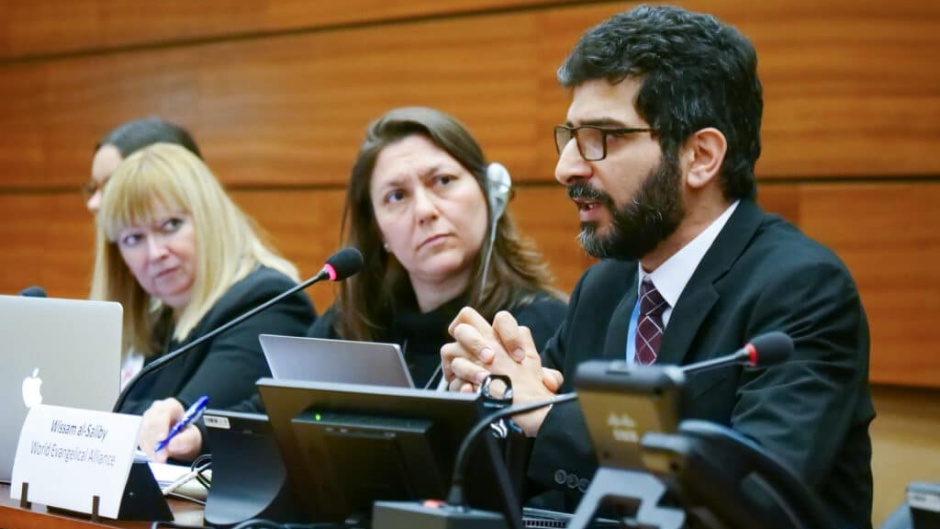Christians denounce sanctions prevented the arrival of aid to Syria after the earthquake
“We are not against sanctions but for human rights”, says the World Evangelical Alliance representative at the UN Human Rights Council.
WEA · GENEVA · 17 MARCH 2023 · 15:00 CET

The World Evangelical Alliance (WEA), along with Caritas Internationalis (CI), the World Council of Churches (WCC), ACT Alliance and the Geneva Graduate Institute, launched the report “Assessing the impact of sanctions on humanitarian work”, during the 52nd session of the United Nations Human Rights Council in Geneva.
The report pointed out that organisations usually face administrative and operational challenge , while providing humanitarian aid to affected populations in sanctioned countries.
“Administrative challenges include understanding sanctions requirements, legal repercussions and related risk-aversion by actors in the humanitarian supply chain, as well as additional due diligence measures and lengthy application processes for humanitarian licences”, says the report .
Futhermore, “the most severe operational challenges are the transfer of funds to sanctioned countries, because banks often refuse to process transactions for humanitarian projects when the final destination is a sanctioned country; and travel restrictions”.
It also makes recommendations on “how to navigate some of those, based on the interviews with twenty humanitarian practitioners from various constituencies of the WCC, CI, and WEA, and five sanctions experts”.
WEA: “We are not against sanctions but for human rights”
“We are not against sanctions but for human rights and humanitarian law. What our constituency has been telling us is that sanctions, and bank over-compliance with sanctions, in relation to Syria and the broader Middle East have led to bank transfers blocked and bank accounts unjustly frozen”, stressed WEA Geneva office director Wissam al-Saliby.
He recalled that “when the earthquake in Syria happened, churches tried to provide support, but their immediate efforts were hindered by sanctions, and continue to be hindered despite the partial humanitarian exemptions”.
Advocacy for humanitarian sanction exemptions
“Everything that increases rather than reduces tensions, including maximum pressure sanctions. or that prevents people-to-people encounters, is a conflict risk and an obstacle to peace”, added Marianne Ejdersten, communication director of the WCC.
Karam Yazbeck, regional coordinator, Caritas Middle East and North Africa, warned that “humanitarian exemptions are not sufficient to address the long-term negative effects of sanctions on the vulnerable population which is already suffering dramatic consequences of the civil war”.
Maja Liechti, of the Geneva Graduate Institute, concluded the session presenting key recommendations from the report and the potential impact of intensifying advocacy for humanitarian sanction exemptions, collaborating with relevant UN bodies to coordinate such advocacy.
You can read the full report here.
Published in: Evangelical Focus - world - Christians denounce sanctions prevented the arrival of aid to Syria after the earthquake
